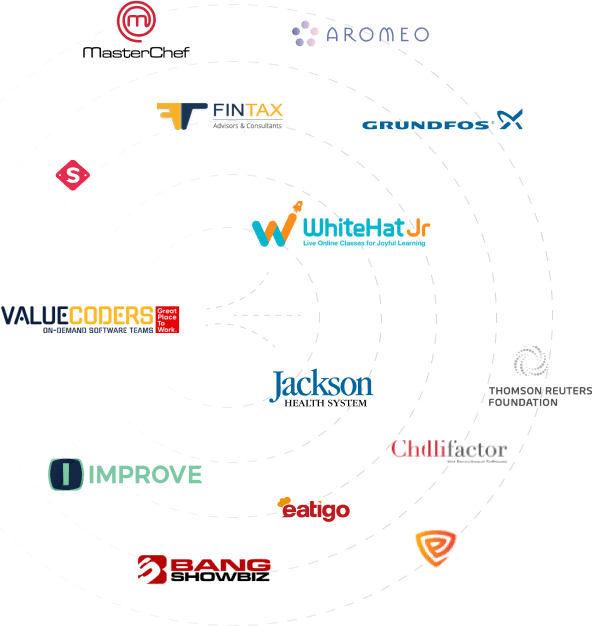Types of Web APIs for Enterprise-Grade Web App Development
In 2019 the number of apps available for download in leading app stores reached the mark of 1.96 million in…
Get free consultation and let us know your project idea to turn it into an amazing digital product.


API Development is the process by which an application requests one or more other applications and services, usually over the internet, to get specific data or functionality.
The term “API” is short for “Application Programming Interface” and refers to the various means that a developer has of communicating with other applications and services. APIs can request data from outside sources or issue commands or instructions to other applications.
API development usually involves using special software development tools known as “API frameworks”. These frameworks provide a simplified means of communicating with other applications and services, reducing the amount of coding required.
There are various steps involved in developing an API, but the most important ones are:
There are many types of APIs, but we can broadly classify them into four major categories: SOAP, REST, HTTP, and WebSocket.
SOAP (Simple Object Access Protocol) – It is a standardized protocol for building web services. It uses XML to encode messages and relies on transport protocols like HTTP or SMTP for message passing. SOAP is widely used in enterprise applications because we can easily integrate it with existing systems, and it provides a robust way to implement web services.
REST (Representational State Transfer) – It is an architectural style for building web services that uses simple HTTP requests to make direct calls to resources without going through a central dispatcher. This makes RESTful applications much simpler to develop and easier to scale than other applications.
HTTP (Hypertext Transfer Protocol) – It is the most common type of API. It’s used to exchange data between a server and a client, usually HTML pages. HTTP is a stateless protocol, meaning each request is independent of all other requests making it inefficient for exchanging data between a server and multiple clients. So, it’s not typically used for real-time applications.
Websocket is a newer protocol that allows browsers to communicate with servers in real time. It’s more efficient than HTTP because it uses sockets to directly connect the browser and server.
Any API is considered efficient if it performs its function with a minimum amount of computational resources and latency. In terms of resource utilization, an efficient API will use the smallest possible memory footprint and CPU usage. It will also minimize network calls, making batch requests when possible.
In terms of latency, an efficient API will have quick response times so that clients don’t have to wait long for data. It will also utilize caching to reduce the need to fetch data from the origin server. Cache invalidation strategies should be carefully implemented to avoid stale data.
Security is another crucial consideration for any API. An efficient API will have well-designed authentication and authorization mechanisms to keep data safe.
Drop us a line and we'll get back to you immediately to schedule a call and discuss your needs personally.
All our projects are covered under the Non-Disclosure Agreement. However, we have taken permission from some of our clients to showcase few projects for your review so that you can better understand how we have developed e-commerce solutions for varied requirements of our clients:
This application is created using React Native and Expo libraries to implement all the designs and APIs.
An online platform which not only allows students and mentors to interact with the preparation building process but also allows the parent of an individual student to become a mentor and share their expertises, study resources, needs to be developed.
ValueCoders with its E-Learning expertise developed a platform which not only resolved the above management issues but also framed a ‘Workbook’ module under which students can evaluate their learning by attempting test series of specified topic or concept .
The project was to develop an online platform that updates you regarding traffic violations, real-time information about accidents, closures, congestion,...
We at ValueCoders come up with write-ups that enhance your knowledge and keep you updated about the latest happenings in the IT industry. Our experts constantly research new IT tools and make write-ups for our valuable customers.


In 2019 the number of apps available for download in leading app stores reached the mark of 1.96 million in…
You should choose ValueCoders because we are known for our excellent API development services. Our team has a lot of experience creating efficient and reliable solutions to meet your needs!
We have:
1. Technical expertise – We have a team of experienced API design and development developers
2. Proven track record – We have a proven track record of delivering high-quality APIs on time and within budget
3. Quality assurance process – We have a rigorous quality assurance process to ensure that we develop all APIs to the highest standards possible
4. Cost-Effective: We provide cost-effective API development and integration solutions, enabling clients to save on development costs
5. Quality Assurance: We have a dedicated quality assurance team that conducts rigorous testing and ensures that the APIs are of the highest quality
Our expertise in creating robust and efficient systems will allow you more time to focus on other business aspects!
The average cost of developing a custom API can range from $15 to $30 per hour, depending on the project’s complexity. To get an accurate quote for your project, it’s best to consult a professional development team who can assess your specific needs and give you a price estimate.
When considering the cost of developing a custom API, it’s essential to keep in mind the ongoing maintenance and support expenses associated with it. These costs can add up over time, so it’s important to factor them into your budget when deciding whether or not to develop a custom API.
When it comes to API development, there are a few different technologies that we use to make the process more efficient and streamlined.
One of the most popular technologies for API development that we use is REST, or Representational State Transfer. This type of architecture enables simple, fast, and scalable APIs that are easy to develop and maintain.
Another common technology we use for API development is SOAP or Simple Object Access Protocol. This ensures a standard way for different applications to communicate with each other using XML.
Finally, another popular technology used for API development is known as gRPC or Google RPC. We use it for its high performance, thanks to its efficient binary encoding and language-independent nature.
API versioning and updates are critical to ensure the stability and reliability of APIs. We use industry-standard version control systems and follow best practices for API versioning and updates. Our team closely monitors changes in technology and the needs of our clients to ensure that our APIs are always up-to-date and compatible with the latest systems. We also provide documentation and support for developers to make the transition to new API versions as smooth as possible.
Yes, we can integrate your existing systems with new APIs. Our team has experience integrating APIs with a wide range of existing systems and platforms, including legacy systems, databases, and third-party applications. We follow industry-standard integration practices to ensure that APIs are seamlessly integrated with your existing systems and that data is accurately and securely transmitted between systems.
Our consultants will respond back within 8 business hours or less.